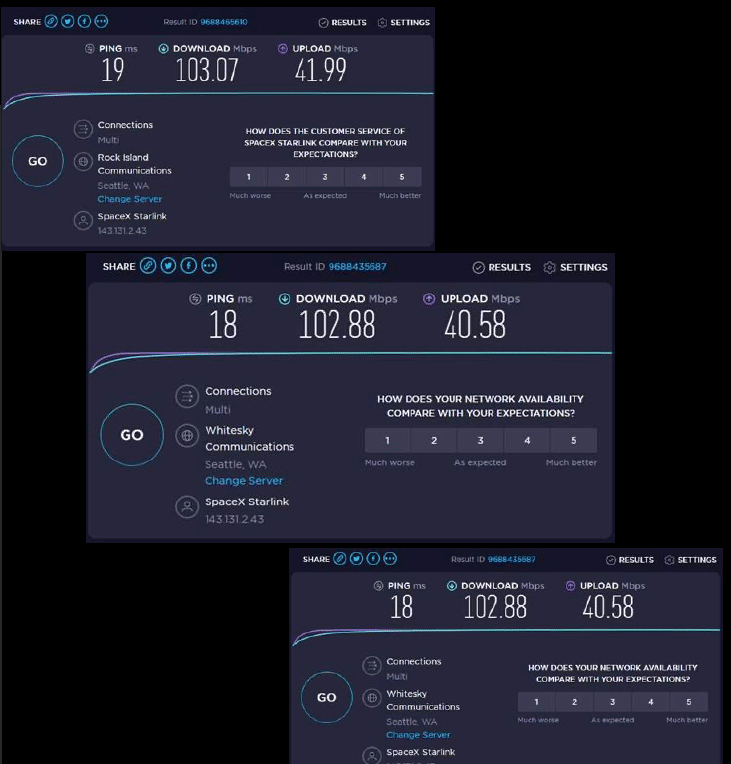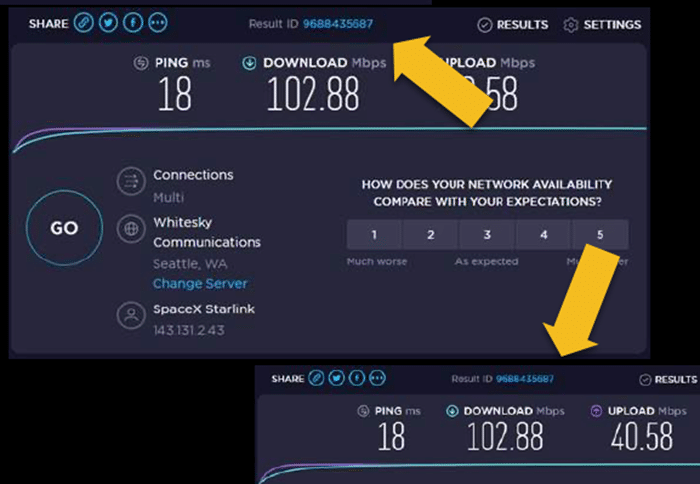Last month, speed tests from beta testers of SpaceX’s Starlink leaked. This month, a few tests conducted by StarLink itself were shared in a public FCC filing. The results are outstanding:
Test 1
- Ping: 19ms
- Download speed: 103Mbps
- Upload speed: 42Mbps
Test 2
- Ping: 18ms
- Download speed: 103Mbps
- Upload speed: 41Mbps
Methodology
SpaceX almost certainly cherry-picked the tests to put Starlink in a good light, but the results are still impressive. I wasn’t convinced Starlink would ever deliver on Elon Musk’s claims about sub-20ms latency. Hell, Ajit Pai, the FCC’s chairman, was skeptical Starlink would deliver sub-120ms latency.
The test results come from screenshots in a presentation slide. I don’t know much about the methodology behind the tests, but it looks like they came from Ookla’s speedtest.net.
Along with the test screenshots, the slide includes some text. Here are a few of the bullets:
- High-speed, low latency broadband to any location on earth
- Tested at over 100 Mbps using standard user equipment
- Latency <40-50ms round trip to the internet
I’m not sure if SpaceX was meaning to imply that the screenshots shared in the slide came from tests using standard equipment. While the screenshots do show speeds over 100Mbps, the latency results are lower than 40Mbps (possibly a lot lower if the tests are measuring round-trip as I expect).1
Here’s the graphical portion of the slide:

At first glance, I thought two separate tests gave nearly identical results. Zooming in, we can see both tests have the same ID.

I expect it was an honest mistake on SpaceX’s end, but it’s strange.
Footnotes
- The following excerpt comes from a description of latency tests on speedtest.net:
“This test is performed by measuring the time it takes for the server to reply to a request from the user’s client. The client sends a message to the server, upon receiving that message, the server sends a reply back. The round-trip time is measured is measured in ms (milliseconds).

